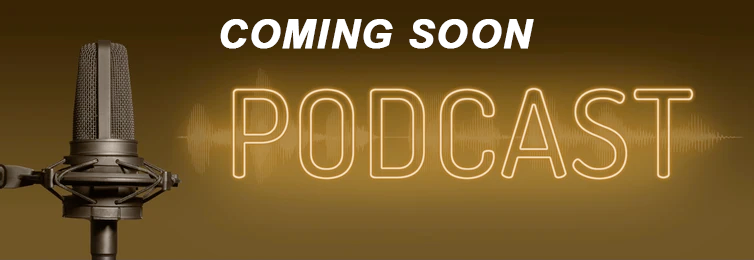Top 10 Guitars for beginners
Top 10 Guitars for beginners
Are you ready to strum your way into the world of music? Picking up a guitar can be one of the most rewarding experiences, especially for beginners. The thrill of plucking those strings and creating beautiful melodies is unparalleled. Whether you’re dreaming of jamming with friends, serenading that special someone, or simply enjoying some solo time, learning to play the guitar opens up endless possibilities.
But before you dive in headfirst, choosing the right guitar is crucial. With so many options available out there, it can feel overwhelming. That’s where we come in to help! We’ll explore everything from why learning guitar is beneficial to what features make for an ideal beginner instrument. Plus, we’ve curated a list of the top 10 guitars tailored specifically for newcomers like you! So grab your pick and let’s get started on this musical journey together!
Why Learn to Play the Guitar?
Learning to play the guitar is like unlocking a new form of expression. It allows you to communicate emotions and tell stories through music, connecting with others on a deeper level.
The versatility of the guitar makes it an ideal choice for all genres. Whether you’re into rock, folk, blues, or classical, there’s something for everyone. You can strum along to your favorite songs or create original compositions that reflect your unique style.
Playing the guitar also helps boost cognitive skills. It enhances memory and coordination while challenging your brain in exciting ways. Plus, mastering this instrument can increase self-discipline and patience as you navigate chords and techniques.
Socially, playing guitar brings people together. It’s perfect for gatherings around campfires or casual hangouts with friends who share similar interests. The joy of sharing music creates lasting memories that enrich our lives.
The benefits of learning guitar as a beginner
Learning to play the guitar opens up a world of creativity. It allows beginners to express their emotions through music. Strumming chords or picking notes can be incredibly therapeutic.
Playing guitar also boosts cognitive skills. It engages both the left and right sides of your brain, enhancing memory and concentration. This mental workout is beneficial for people of all ages.
Musically, it builds confidence. As beginners master new songs or techniques, they experience a sense of achievement that encourages further exploration.
Socially, playing guitar can connect you with others who share similar interests. Whether jamming with friends or performing at gatherings, it fosters camaraderie and collaboration.
Learning an instrument like the guitar cultivates patience and perseverance. Progress takes time and effort, teaching valuable life skills along the way. These benefits make picking up a guitar an enriching experience for anyone willing to try.
Factors to Consider When Choosing a Beginner Guitar
Choosing a beginner guitar can feel overwhelming. There are several key factors to keep in mind.
First, consider the type of guitar: acoustic or electric. Acoustic guitars offer simplicity and portability, ideal for beginners. Electric guitars provide versatility but require additional gear like an amplifier.
Next, think about size and comfort. A well-fitting guitar is crucial for developing good playing habits. Smaller-bodied guitars can be more manageable for younger players.
Don’t forget about string type! Nylon strings on classical guitars are softer on fingers than steel strings found on most acoustics and electrics.
Your budget matters too. Quality options exist across various price ranges, so set a realistic budget that doesn’t compromise sound quality or playability. Explore brands with solid reputations known for making reliable beginner instruments; they often provide better value in the long run.
What to look for in a beginner guitar
When selecting a beginner guitar, comfort is key. The instrument should feel good in your hands and be easy to hold. A lighter body can help prevent fatigue during longer practice sessions.
Next, consider the size of the guitar. For children or those with smaller frames, a 3/4 or travel-sized model might be more suitable than a full-size guitar.
The materials used in construction also matter. Solid wood tops often produce richer tones compared to laminate options, but they may come at a higher price point.
Don’t overlook playability either. Ensure that the strings are not too high off the fretboard for easier pressing down on notes.
Check for good intonation and tuning stability. This will ensure that you sound great from day one as you start your musical journey.
The Importance of Choosing the Right Guitar
Selecting the right guitar is crucial for beginners. It directly influences your learning experience. A well-suited instrument can boost confidence and motivation.
Comfort plays a big role in this choice. If a guitar feels good in your hands, you’re more likely to practice regularly. This consistency is key for building skills.
Sound quality also matters significantly. An inspiring tone can spark creativity and keep you engaged with music longer.
Moreover, the right guitar encourages proper technique from the start. Poor choices may lead to frustration or bad habits that are hard to break later on.
Investing time in finding an ideal fit will pay off as you progress on your musical journey. Each beginner’s path is unique, so personal preferences should guide this important decision.
Tips for Buying a Used Guitar
Buying a used guitar can be an exciting adventure. It’s essential to approach it with care.
Start by inspecting the instrument closely. Look for any signs of wear or damage, like cracks in the body or worn frets. These issues can affect playability and sound quality.
Play the guitar before purchasing. Listen for buzzing sounds while playing open strings and chords. This will help you gauge its overall condition.
Ask about the guitar’s history. Find out how long it’s been played, if it’s ever had repairs, and whether it comes with original parts.
Don’t rush into a decision. Take your time comparing different options to ensure you’re getting a good deal.
Trust your instincts! If something feels off about the sale or the instrument itself, it may be best to walk away and keep searching for that perfect beginner guitar.
Top 10 Guitars for Beginners (including brand, model, and price)
When starting your guitar journey, the right instrument can make all the difference. Here are ten fantastic options that cater to beginners.
The Yamaha FG800 stands out for its solid spruce top and rich sound, typically priced around $200.
Next up is the Squier Affinity Stratocaster, a favorite among rock enthusiasts at about $250. Its versatility makes it perfect for various genres.
For those drawn to acoustics, check out the Epiphone DR-100. A classic choice priced around $199 that offers excellent playability.
Fender’s FA-115 dreadnought comes in slightly higher at $249 but delivers great tone and comfort.
The Ibanez GRX70QA electric guitar shines with stunning aesthetics and retails for approximately $300.
Also noteworthy is the Cordoba C5 acoustic nylon-string guitar available for about $399—ideal for classical music lovers.
Each of these guitars provides unique features tailored to budding musicians ready to express themselves through music.
Reviews and Features of Each Guitar
The Yamaha FG800 is a top choice for beginners. Its solid Sitka spruce top offers excellent sound quality, while the rosewood fingerboard provides smooth playability. Priced around $200, it’s both affordable and reliable.
Next up, we have the Fender CD-60S. This dreadnought guitar features a solid spruce top and mahogany back, producing a rich tone. With its easy-to-play neck design, it’s perfect for those just starting their musical journey at about $250.
For electric enthusiasts, the Squier by Fender Affinity Stratocaster stands out. Known for its versatility and iconic shape, this model comes with three single-coil pickups and an adjustable bridge. You can snag one for roughly $300.
The Epiphone Les Paul Special II delivers classic rock vibes in an accessible package. With humbucker pickups and comfortable weight, it’s ideal for aspiring rockstars at around $199. Each of these guitars brings unique features that cater to different playing styles.
Factors to Consider When Choosing a Beginner Guitar
Choosing the right beginner guitar involves several key factors. First, think about the type of music you enjoy. Acoustic and electric guitars offer different experiences.
Next is size and comfort. Guitars come in various sizes, so it’s essential to find one that feels good in your hands. A smaller body may be easier for young players or those with smaller frames.
Budget also plays a significant role. While some high-end models can be tempting, many affordable options deliver excellent quality without breaking the bank.
Consider playability and sound quality. Test out different guitars to see which resonates best with you. A well-made instrument will inspire you to practice more often and enhance your learning experience significantly.
Introduction: The importance of choosing the right guitar for beginners
Choosing the right guitar as a beginner can make all the difference in your learning journey. The instrument you select impacts not only your comfort but also your motivation to practice.
A well-suited guitar helps build confidence. If it feels good to play, you’re more likely to stick with it. This early enjoyment lays the foundation for future growth.
Another crucial aspect is sound quality. A decent tone encourages exploration and experimentation, making practice enjoyable rather than a chore.
Additionally, the type of guitar—acoustic or electric—can influence your interest in various music genres. Your choice should align with your musical preferences.
With so many options available, taking time to choose wisely will set you on a path toward success and satisfaction in playing guitar.
Conclusion
Choosing the right guitar is crucial for beginners. It can make a significant difference in your learning experience and overall enjoyment of playing. A good beginner guitar should be comfortable, easy to play, and help you develop your skills without frustration.
The guitars listed above offer various features, styles, and price points to suit different preferences. Whether you’re looking for an acoustic or electric model, there’s something here for everyone. Take the time to try out different options before making a decision; you’ll discover what feels best in your hands.
Investing in the right instrument will encourage practice and keep your motivation high as you embark on this musical journey. Remember that each player’s path is unique—what works for one person might not work for another. Don’t hesitate to explore all available choices until you find the perfect fit that inspires you to create beautiful music!

